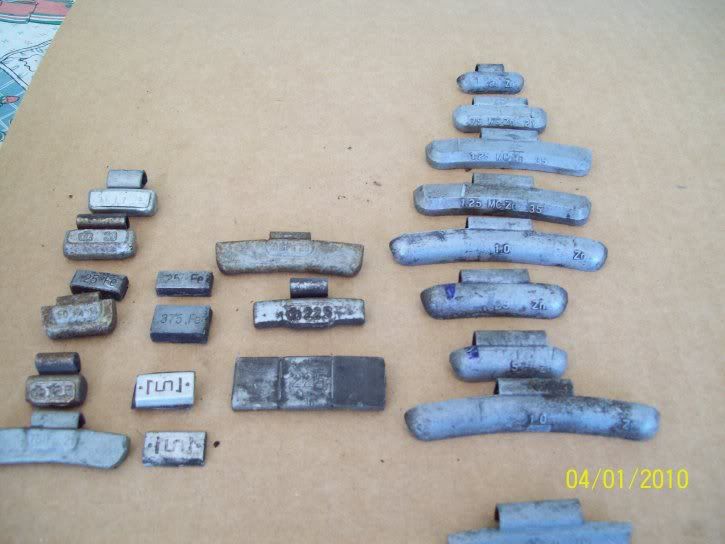Be aware and sort thru your weights carefully before ya toss 'em in the pot. Some are made of really nasty stuff and will ruin a pot of good metal fast. Many states have regulated wheel weights and depending on the make , they have too much tin , antimony , zinc , and other nasty stuff. Some even contain powdered tungsten , which will ruin your barrel as well. There are several sights dealing with lead free wheelweights. Check them out and learn how to spot and identify them.
AAMOF , I'm not sure the good ol' lead weights ever had a specific mix.
Yes, BUT the only thing you have to be worried about is the pure zinc weights. Those other metals will not melt, and in fact will float on the top of the molten lead to be skimmed off with the dross.
As for the excessive tin, antimony thing, that's the first time I ever heard of that. In fact, if true, it would be a GOOD thing. Both are desirable for bullet making, causing the lead to make harder bullets.
It's real easy to avoid the zinc. One, don't heat to over 700 degrees, zinc melts at 787 degrees, it WILL float on the molten lead to be skimmed out.
Two, don't put them in the pot to start with. Cull them. A diagonal cutter will hardly dent a zinc weight, but will easily cut a lead weight.
Three, some zinc weights say right on them zinc or ZN. Some are painted, and some have the steel clip riveted onto the weight itself.


